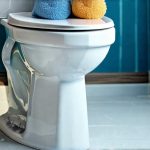Long days can be challenging for anyone, but when you also manage sensitive urinary needs – whether due to overactive bladder, incontinence, post-surgery recovery, medication side effects, or other conditions – those challenges are significantly amplified. The constant awareness of where the nearest restroom is, the anxiety about potential accidents, and the physical discomfort all contribute to a draining experience that impacts not just physical well-being but also emotional and social life. It’s important to acknowledge that this isn’t simply an inconvenience; it’s a real concern that requires proactive management and compassionate understanding. Many people find themselves limiting their activities, avoiding social engagements, or experiencing significant stress due to these concerns, leading to diminished quality of life.
This article aims to provide practical strategies and helpful tips for navigating long days while managing sensitive urinary needs. It’s about empowering you with knowledge and tools to regain control, reduce anxiety, and confidently participate in daily activities. We’ll explore preparation techniques, on-the-go management methods, and lifestyle adjustments that can make a substantial difference. Remember, taking care of yourself is paramount, and there are resources available if you need additional support or guidance. It’s crucial to consult with your healthcare provider for personalized advice tailored to your specific situation—this article serves as a supplement to professional medical advice, not a replacement for it.
Preparation Is Key
Effective management begins before the long day even starts. Proactive preparation is arguably the most powerful tool in minimizing stress and maximizing comfort. This isn’t just about physical preparations; it’s also about mental preparation and building confidence. Think of it as creating a safety net that allows you to approach your day with greater peace of mind.
The first step involves understanding your patterns. Keep a bladder diary for a few days – or even a week – noting when you urinate, how much liquid you consume, and any triggers that exacerbate symptoms (like caffeine, alcohol, or stress). This data will reveal valuable insights into your individual needs and help you anticipate potential issues. Based on this information, you can plan accordingly. For example, if you know you typically need to urinate every two hours, factor that into your schedule during a long meeting or travel period.
Beyond the diary, consider what practical items will be most helpful. This might include: – A change of underwear and trousers (discreetly packed in a waterproof bag) – Wet wipes for quick clean-up – Travel-sized absorbent pads or liners if you use them – even if you typically don’t need them constantly, having them available can reduce anxiety. – A list of restroom locations along your route or at your destination. Many apps now offer this service! – A reusable water bottle to stay hydrated without relying on potentially inaccessible public sources. This also allows for controlled fluid intake. Finally, mentally prepare yourself by visualizing a successful day, focusing on strategies you’ll use and reminding yourself that you can manage this.
Staying Comfortable Throughout the Day
Once your day is underway, maintaining comfort and minimizing anxiety requires ongoing attention. It’s not enough to simply prepare; you need to actively manage your needs as situations arise. This section focuses on techniques for staying proactive during long stretches without easy restroom access.
Fluid management remains crucial. Sip water throughout the day rather than gulping large amounts at once, which can overwhelm your bladder. Avoid excessive caffeine and alcohol, as these are known diuretics that increase urine production. Pay attention to your body’s signals – don’t ignore the urge to urinate, but also avoid rushing to the restroom unnecessarily if it’s a mild sensation. Practice pelvic floor exercises (Kegels) regularly; they can strengthen bladder control muscles over time. Remember consistency is key with these exercises.
Furthermore, managing stress levels is vital. Stress often exacerbates urinary symptoms, creating a vicious cycle of anxiety and urgency. Incorporate relaxation techniques into your day – deep breathing exercises, mindfulness meditation, or even simply taking a few moments to pause and refocus can make a significant difference. If you find yourself feeling overwhelmed, excuse yourself for a moment to regain composure before continuing. Don’t be afraid to advocate for your needs; politely requesting breaks during meetings or asking about restroom availability is perfectly acceptable.
Managing Travel Challenges
Travel often presents unique challenges for individuals with sensitive urinary needs. Long car rides, airplane journeys, and unfamiliar environments can all contribute to increased anxiety and potential accidents. Planning ahead is even more critical when traveling.
Before you go, research the availability of restrooms at airports, train stations, and along your route. Many airport apps now show restroom locations; utilize these resources. Pack a travel kit with all the essentials mentioned earlier – extra clothes, wipes, pads, etc. If you’re flying, consider requesting an aisle seat for easier access to the restroom. During the journey, stay hydrated but avoid excessive fluids before takeoff or landing, as restroom access may be limited at those times. Also, remember that airplane turbulence can make it difficult to get to the restroom quickly, so plan accordingly.
Dealing With Unexpected Urgency
Even with meticulous preparation, unexpected urgency can occur. It’s important to have a plan for these situations and to avoid panic. The first step is to remain calm. Panic will only exacerbate the situation. Locate the nearest restroom as quickly as possible, but don’t run – walking briskly is preferable to prevent further stimulation of your bladder.
If you can’t immediately find a restroom, try distraction techniques. Focus on something else – counting backwards from 100, reciting a poem, or engaging in conversation. These distractions can sometimes temporarily suppress the urge. If an accident does occur, don’t beat yourself up about it. Accidents happen, and they are not a sign of failure. Simply clean up as best you can and move forward. Remember, having a change of clothes readily available will significantly reduce stress in these situations.
Advocating for Your Needs
Finally, don’t underestimate the importance of advocating for your own needs. Many people feel embarrassed to discuss their urinary concerns, but open communication is essential for ensuring that your needs are met. This applies to both personal and professional settings.
If you’re attending a meeting or event, inform the organizers beforehand about your needs. Ask about restroom availability and request breaks if necessary. In the workplace, discuss your situation with your supervisor or HR department to explore potential accommodations. Remember that many employers are legally obligated to provide reasonable accommodations for individuals with disabilities, including urinary issues. Don’t be afraid to ask for what you need – it’s your right! Self-advocacy is a powerful tool in regaining control and improving your quality of life.





















